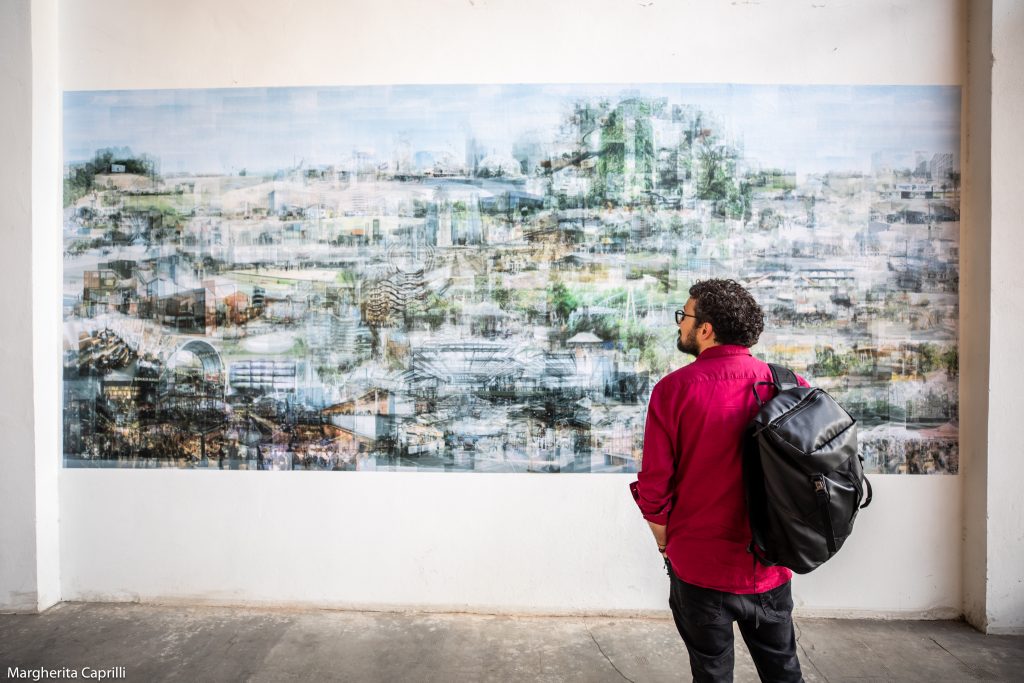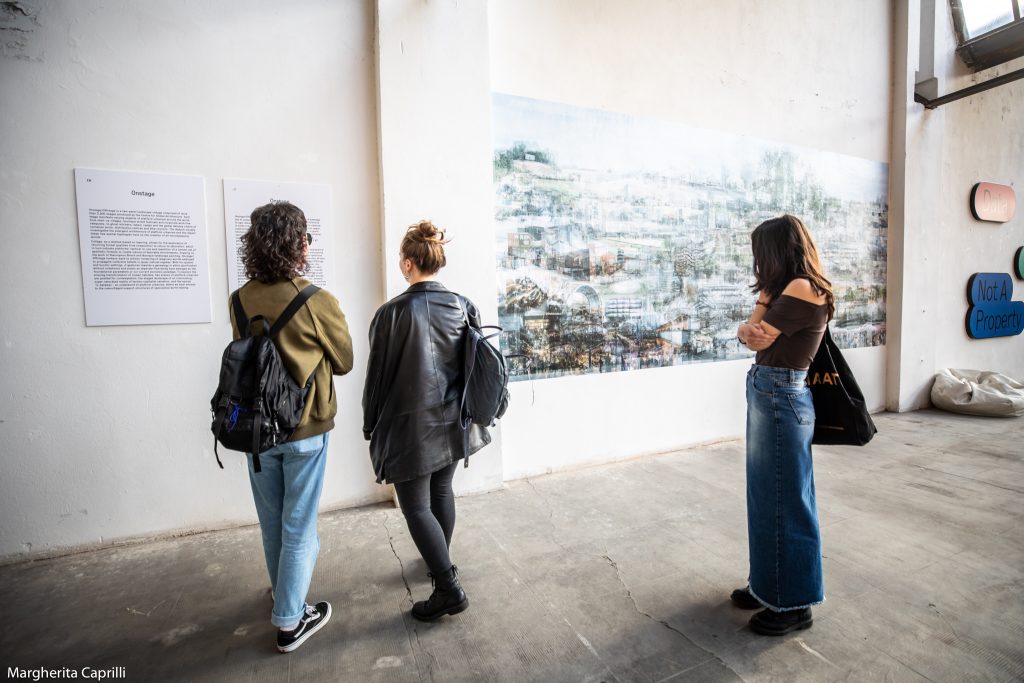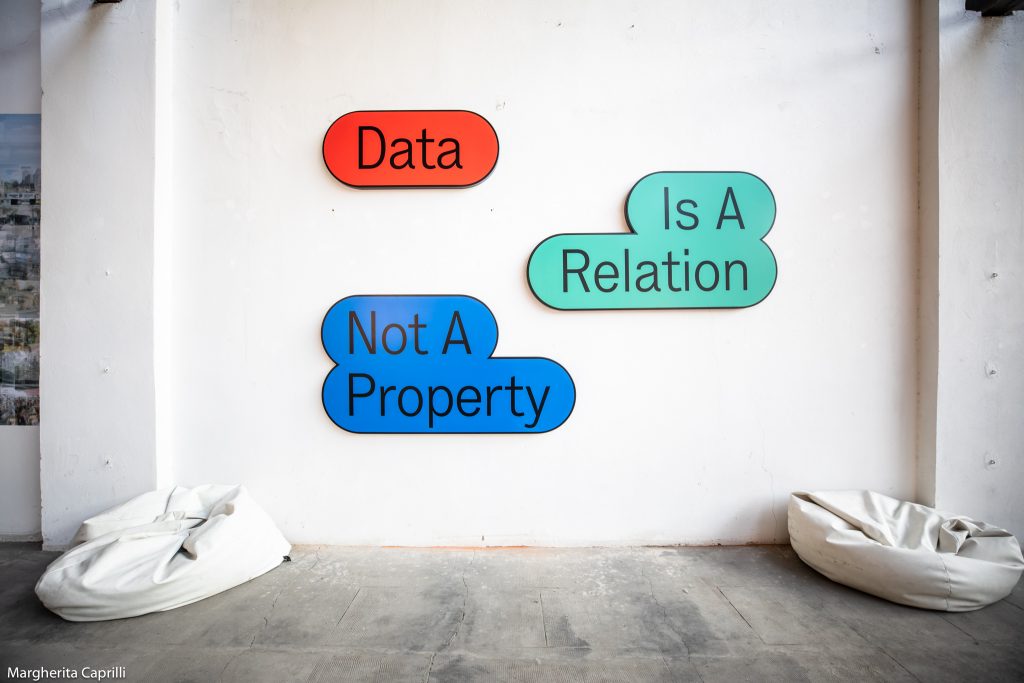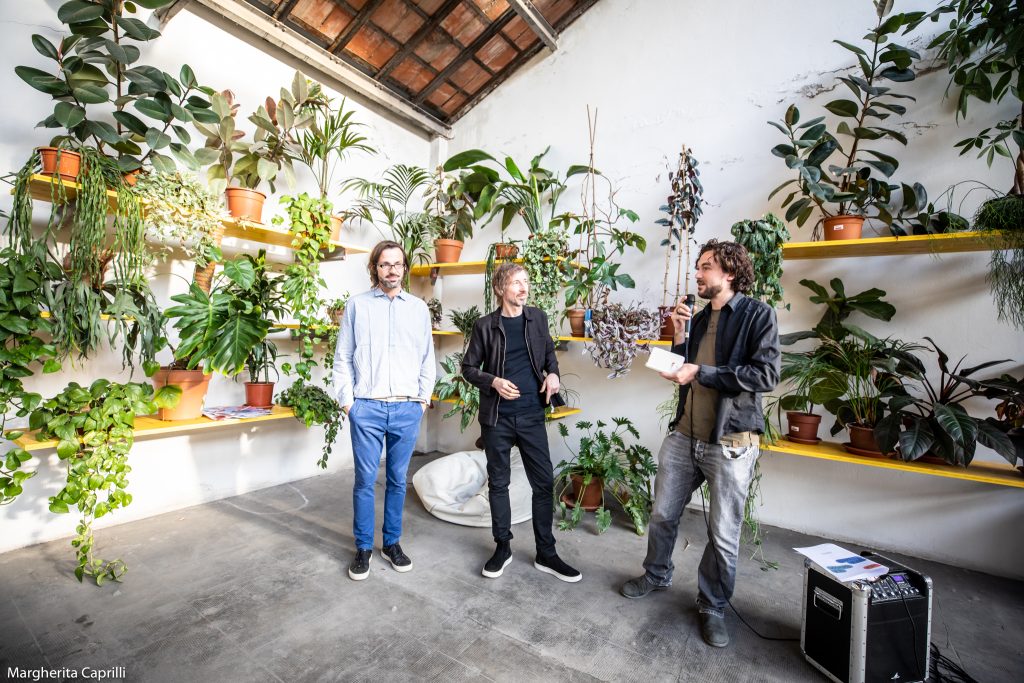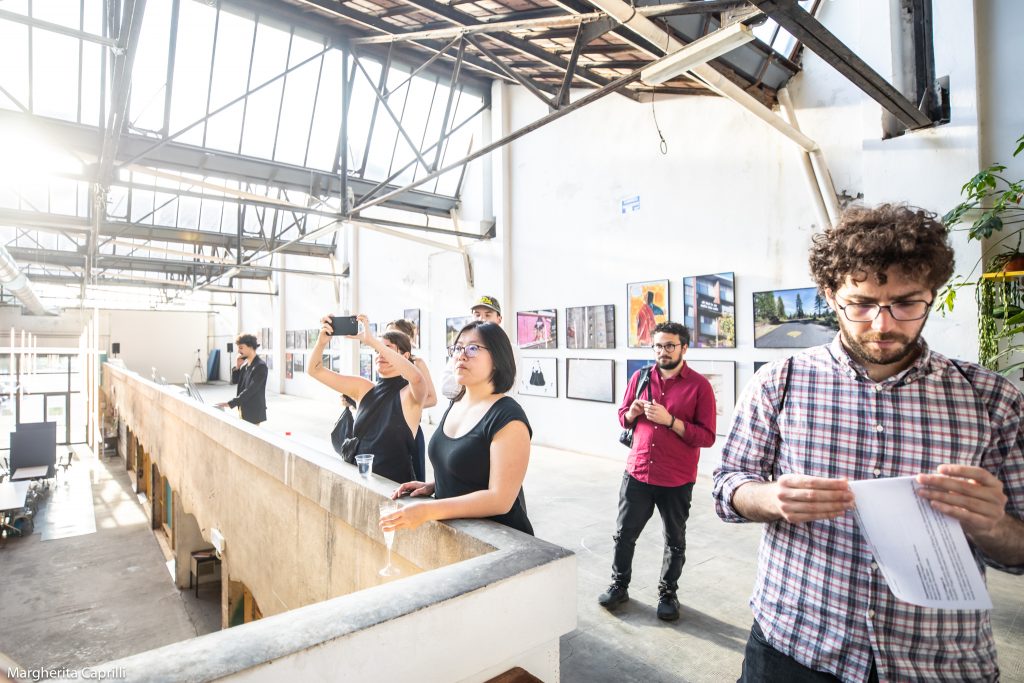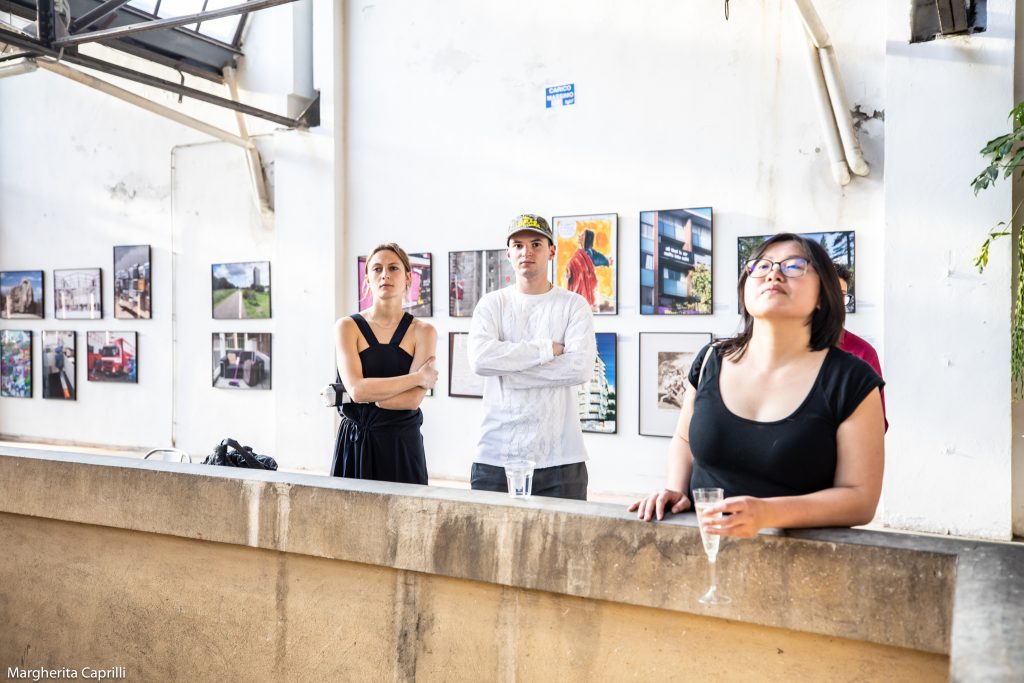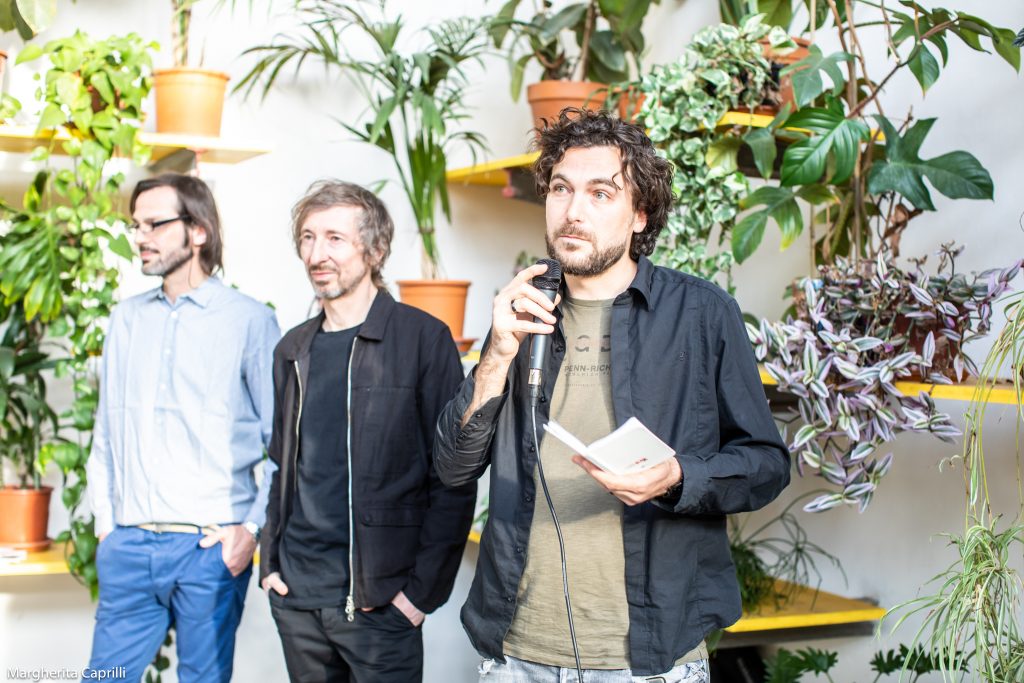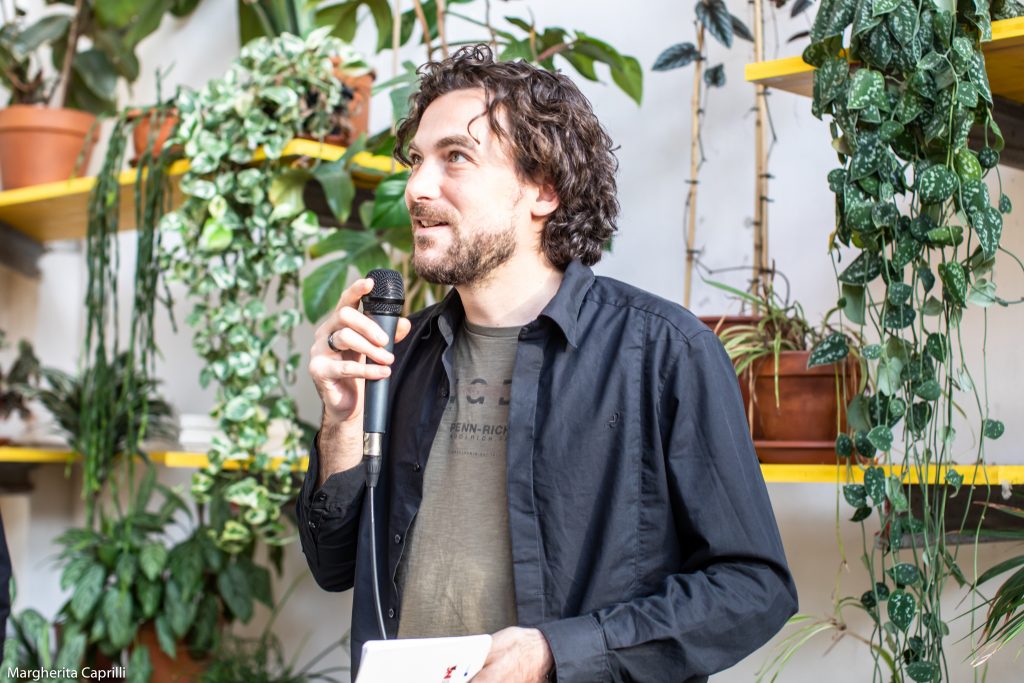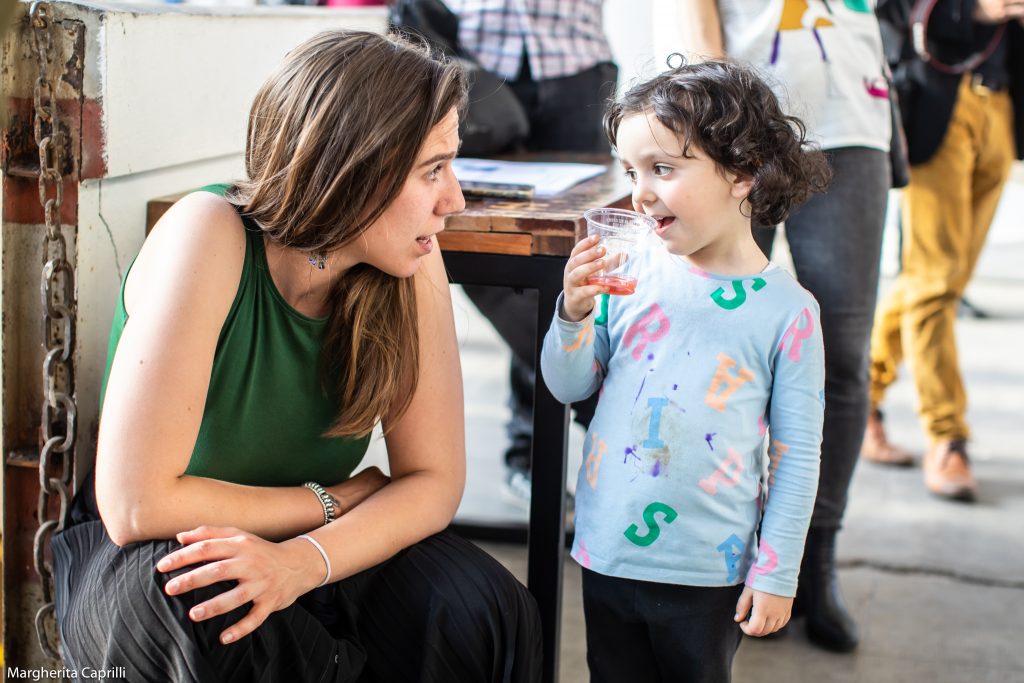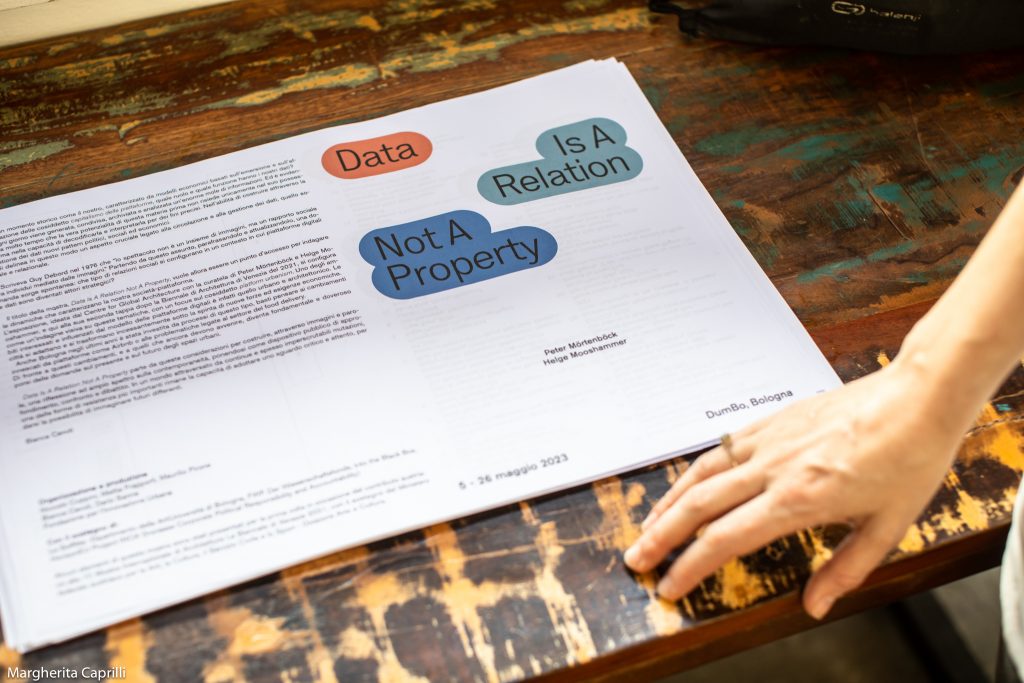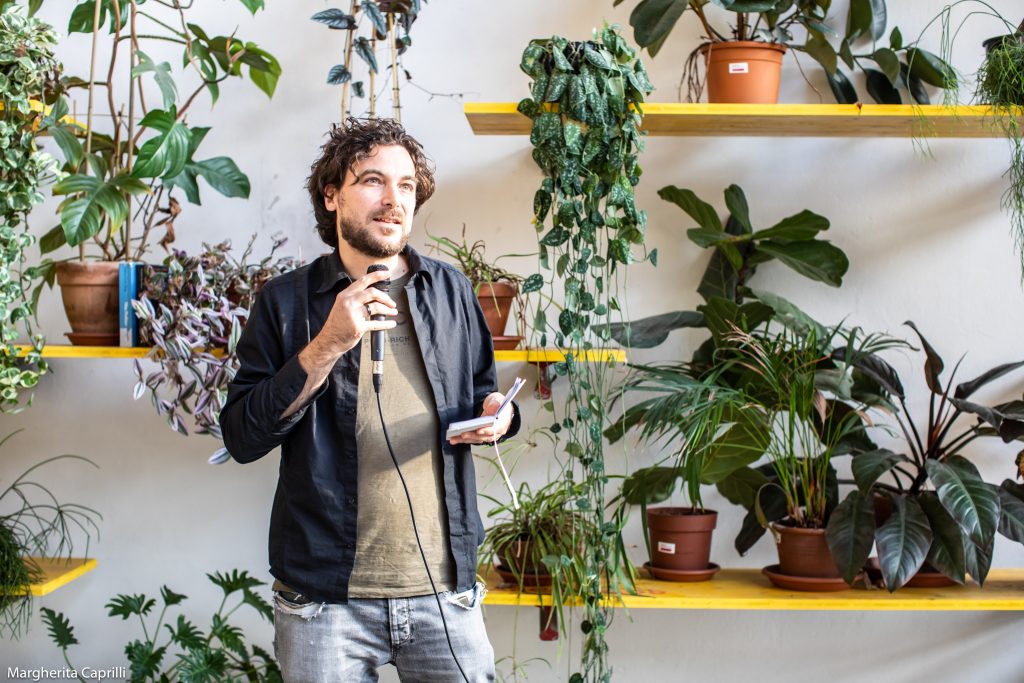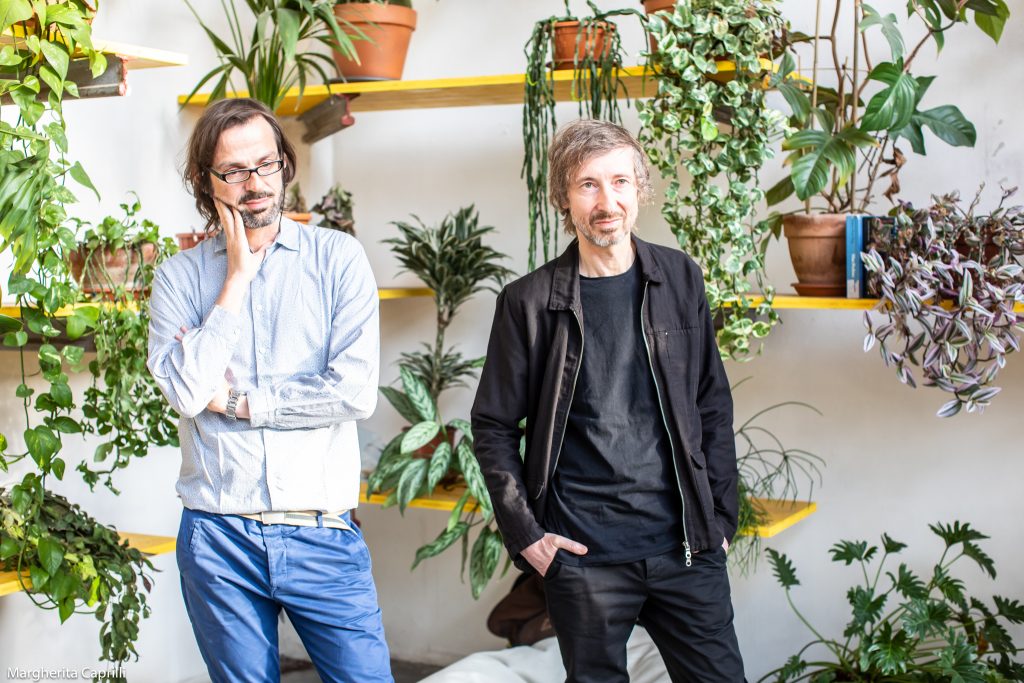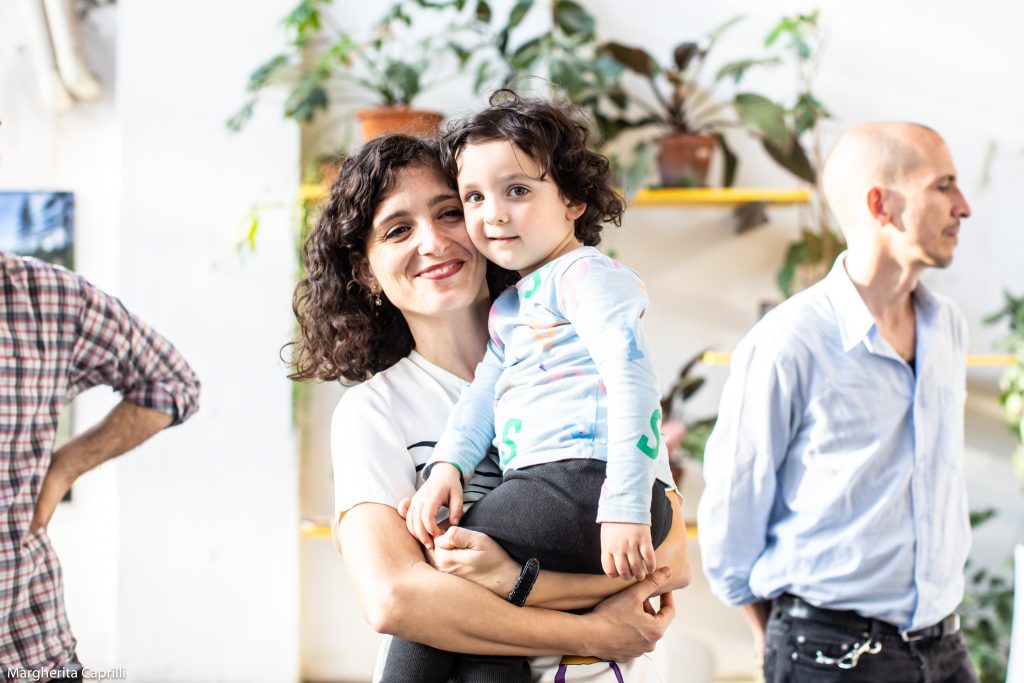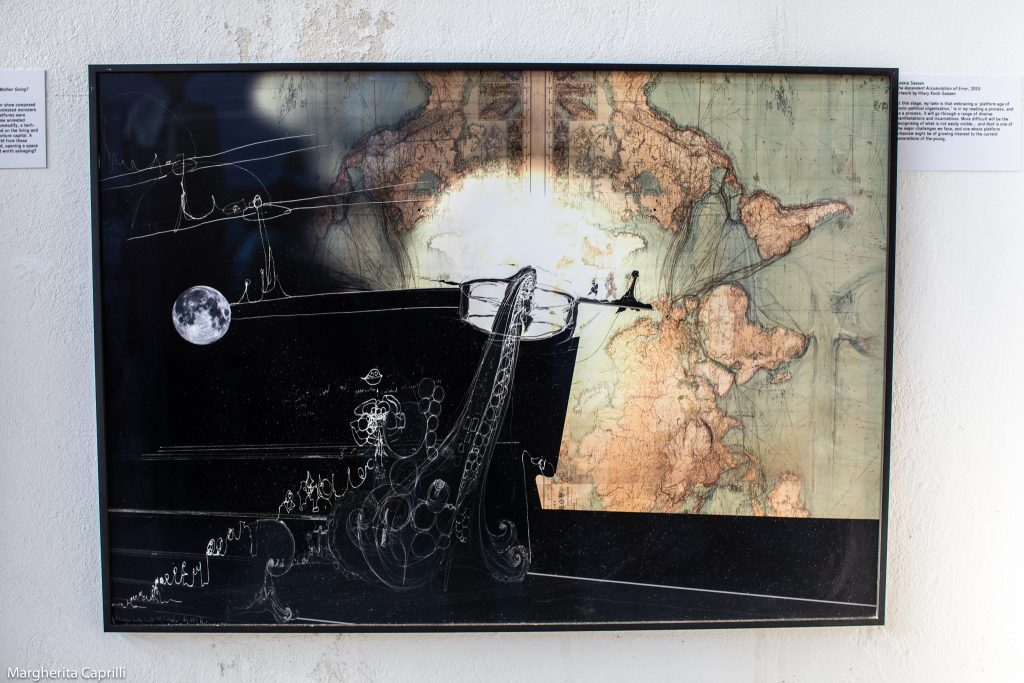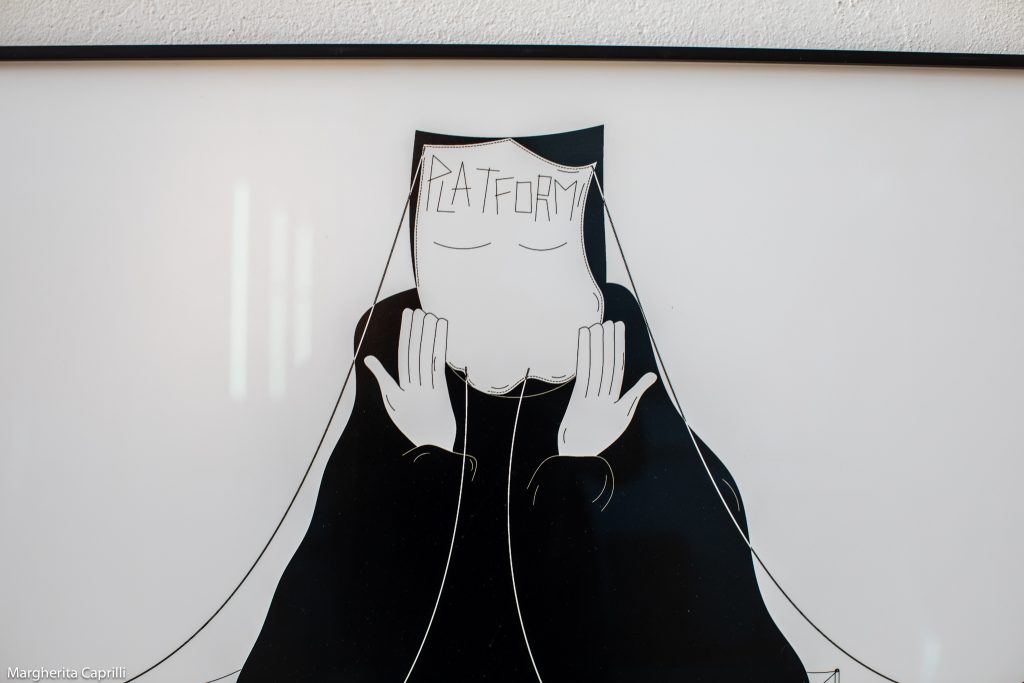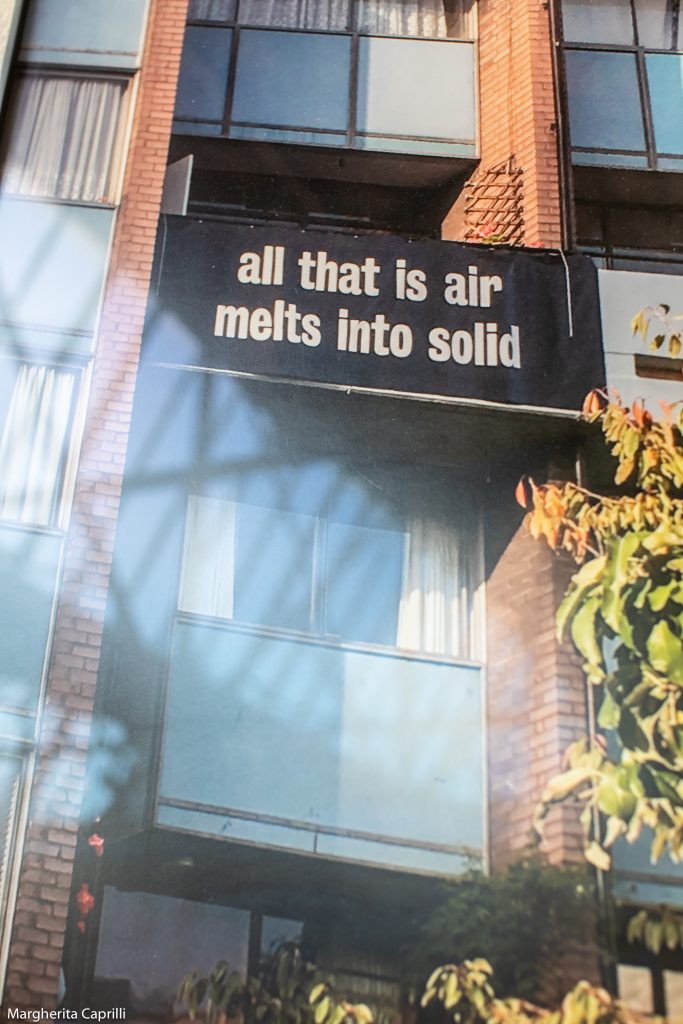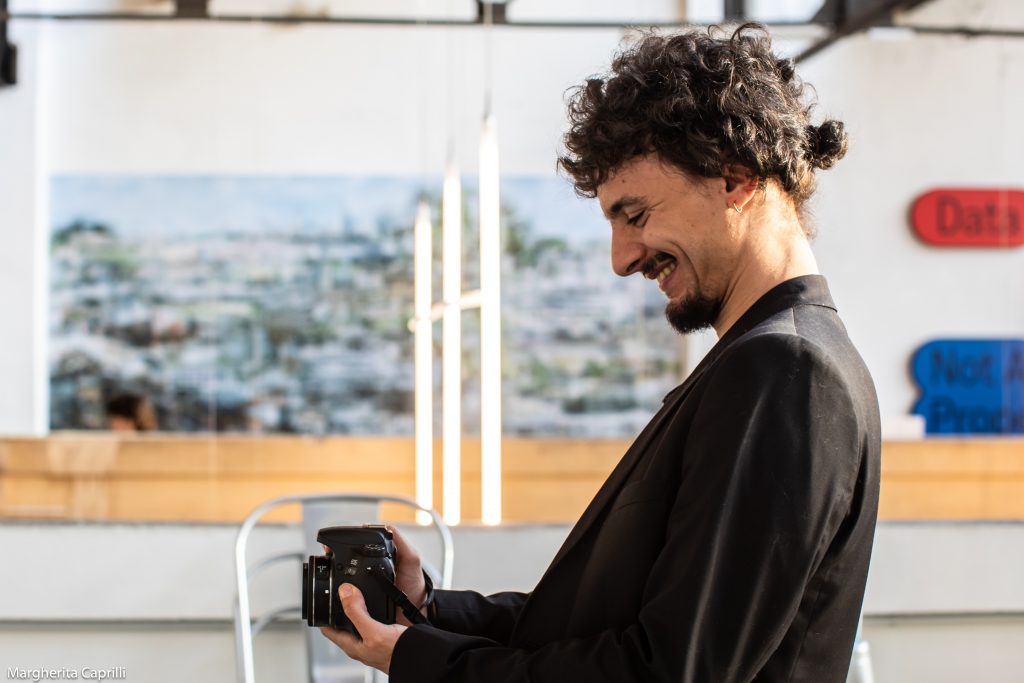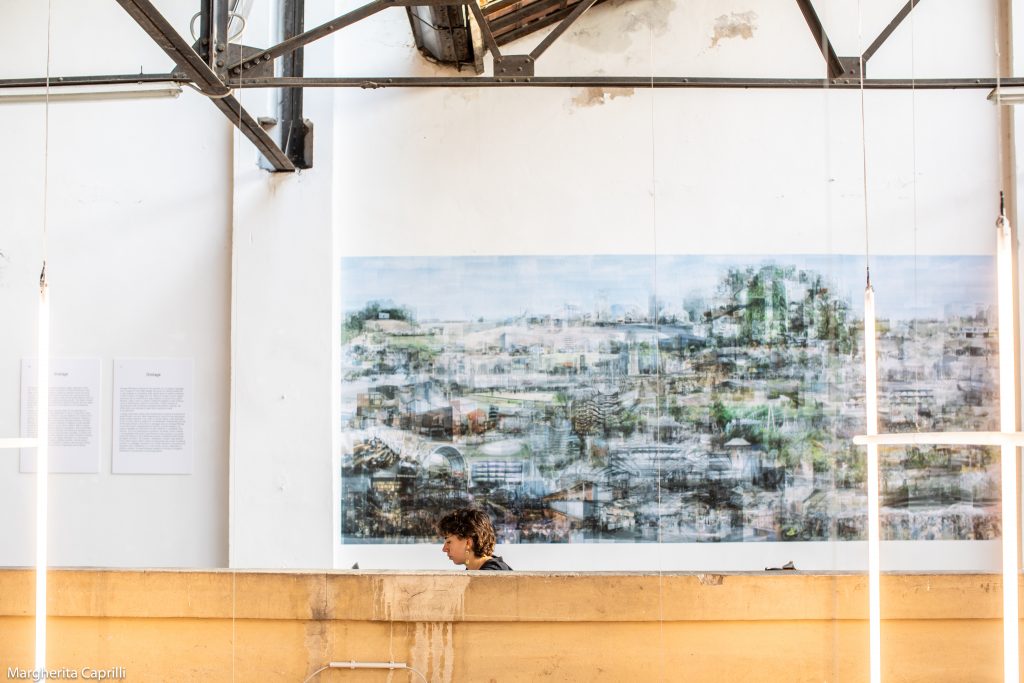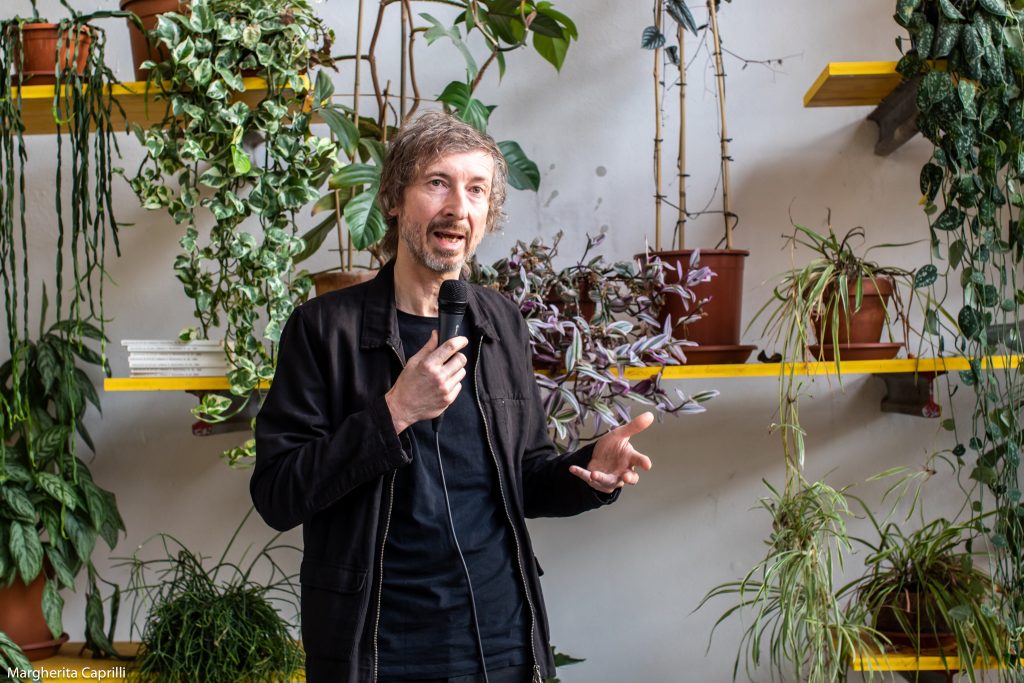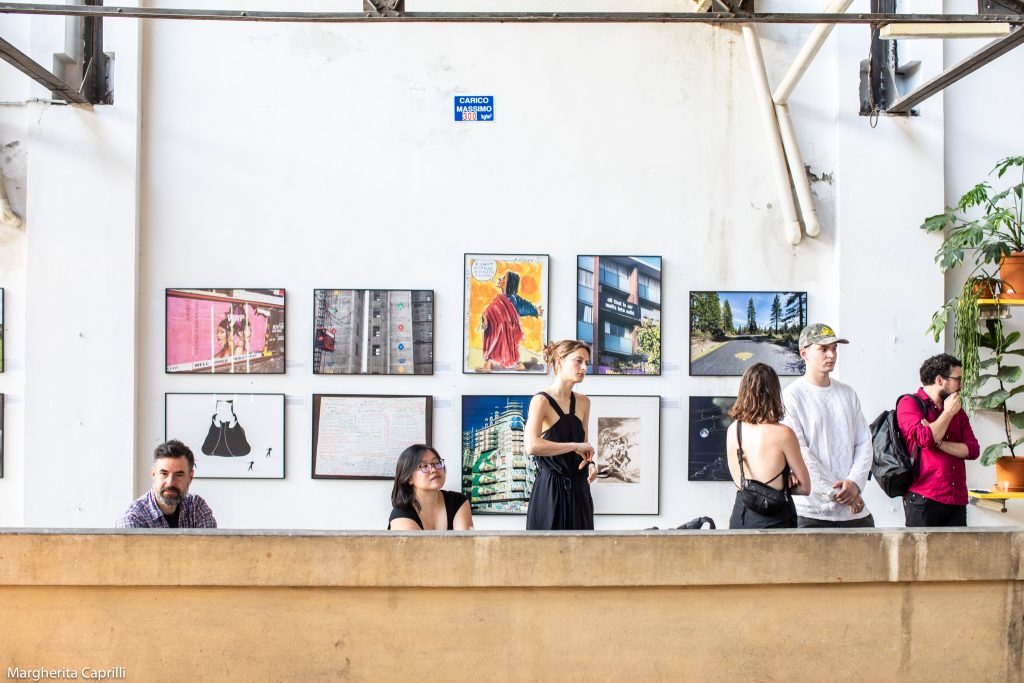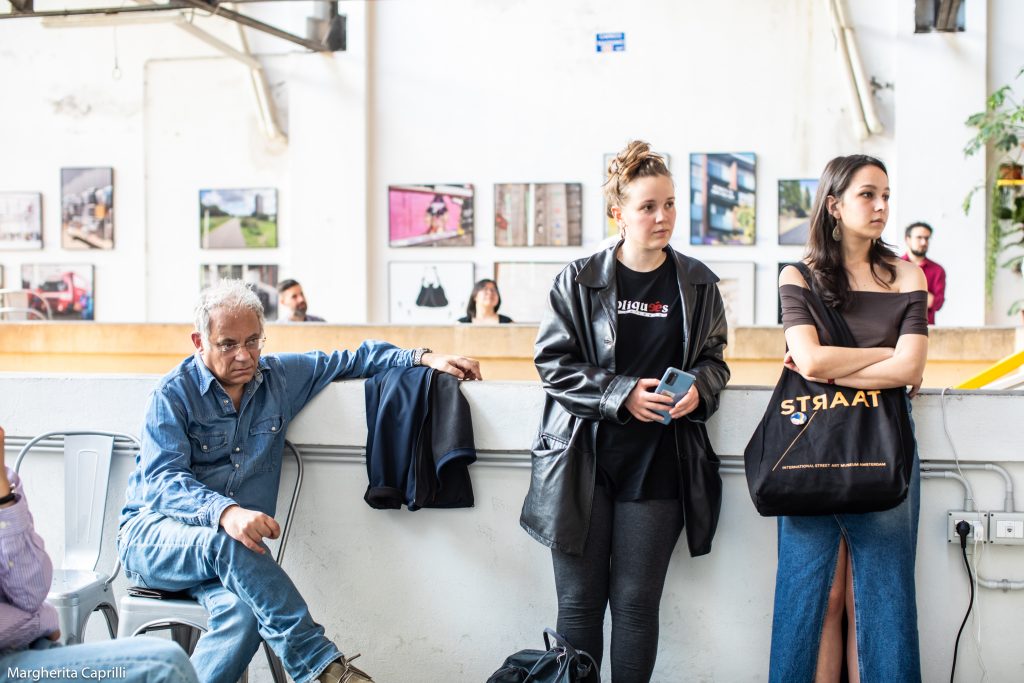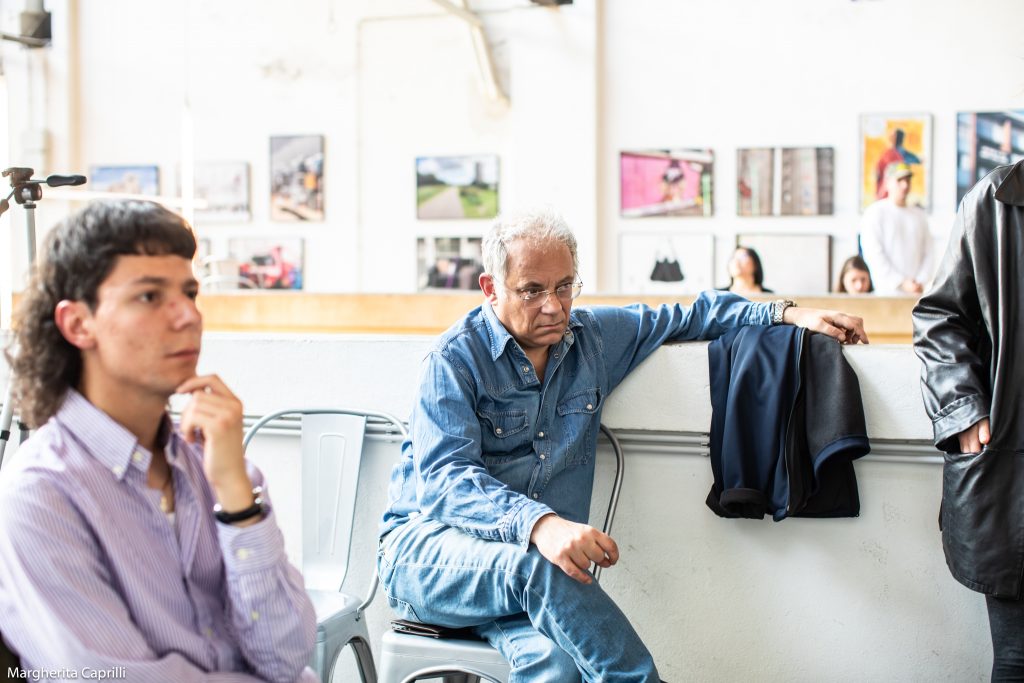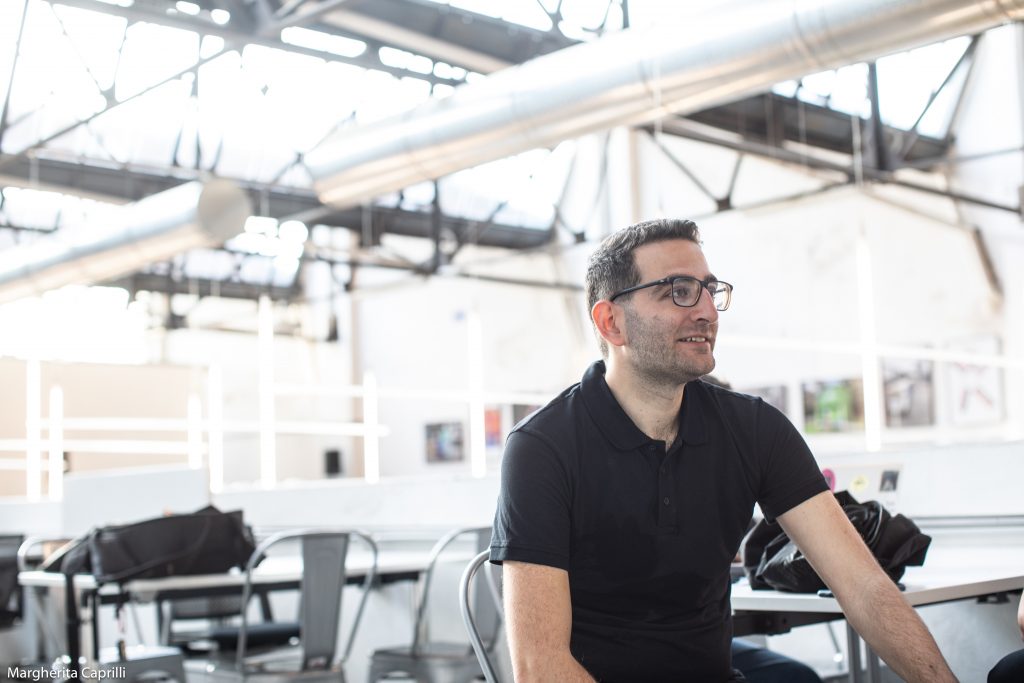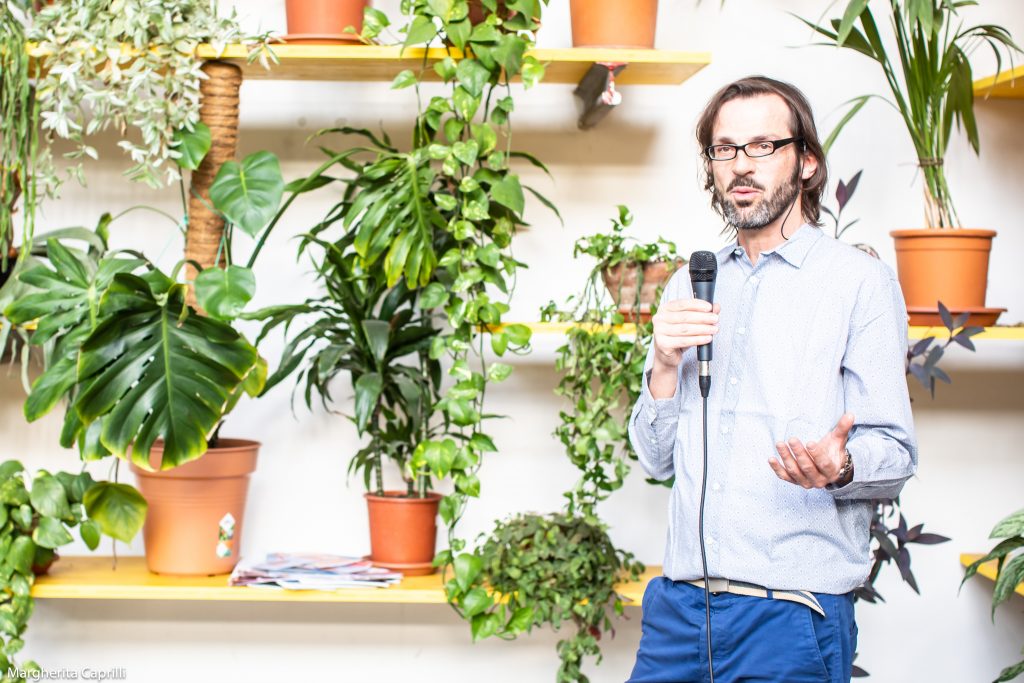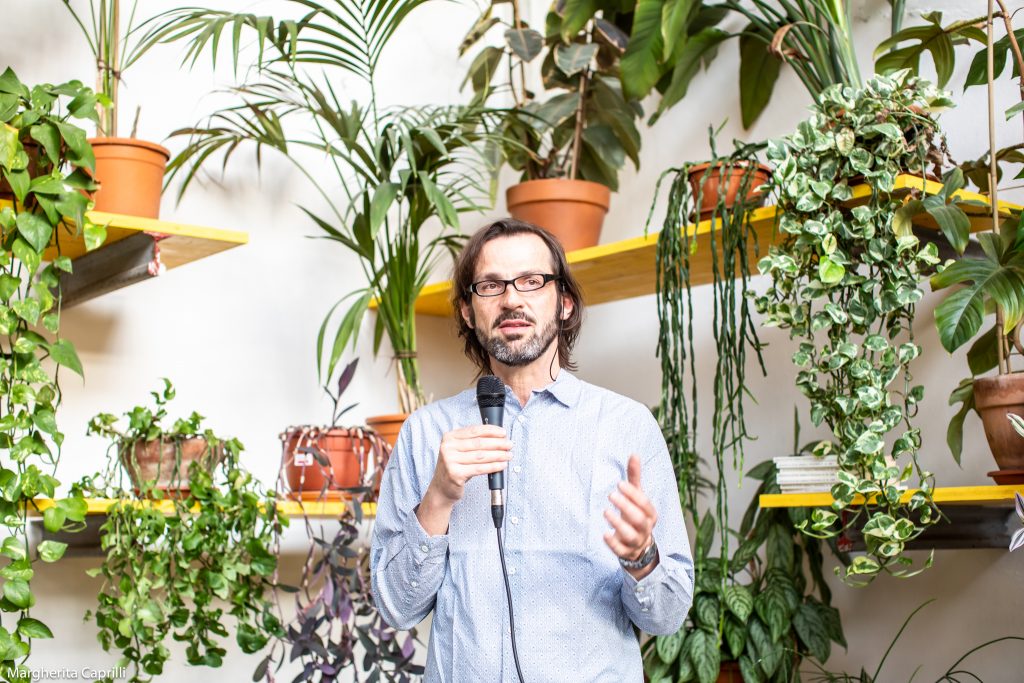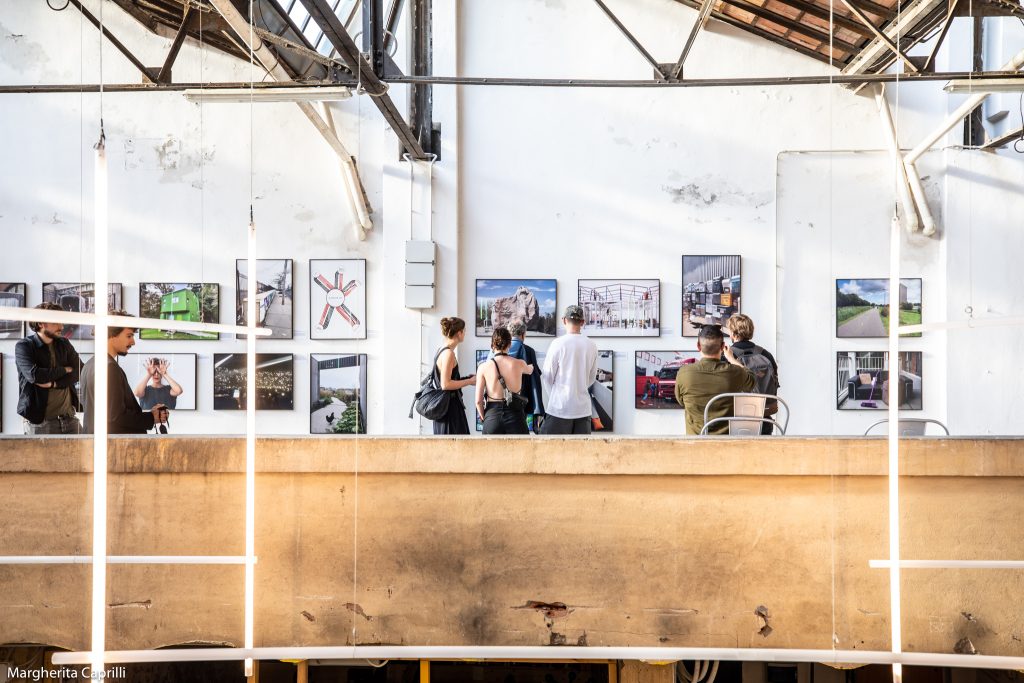
Exhibition by INCA: Data is a relation, not a property
The Bologna Attiva team by the INCA partner Fondazione Innovazione Urbana (FIU), worked together with Into the Black Box, formed among others by also INCA partners Niccolò Cuppini (SUPSI) and Mattia Frapporti (UNIBO), bring together the exhibition entitled “Data is a relation, not a property”. This initiative is developed in the frame of the INCA project. The exhibition is visitable until May 26 at DumBO, Officina.
The framework of the exhibition
Platforms are part and parcel of the changing relationship between technological development, capital, and cities. They act as socio-technical intermediaries and business arrangements and – because they are data based/driven – serve the new logic of organising and curating information. Importantly, platforms are becoming an ever more expansive force thanks to the exploitation of extra-economic components such as trust, shared assumptions, belief systems, social bonds, and emotional attachment. That way, platforms have become a widely adopted means of enclosure utilised to manage and manipulate the complexities involved in the constitution of data publics. For platform urbanism, the key resource to be exploited, cultivated and developed is thus not just the hardware of the city and its built environment but the entire software of urban life itself. Yet, viewed through the lens of social organisation, rather than being a piece of property, data is both a way and a form of articulating a relation. What is therefore at stake is not so much the question of what value we put on data but how we value the relations that underpin the generation of data. That is to say, what matters is not what price we demand our personal data but how we care for our relations unfolding in the social/data sphere. The city of Bologna is powerfully invested in processes of platformisation. Think of the role of platforms for tourist flows, the relevance of food delivery and the struggles of workers in the gig economy in recent years. This exhibition, conceived by the Centre for Global Architecture, opens up new perspectives on the complexity, dynamics, tensions and trends of our platform society; it also functions as a public space to reflect on the impact of these developments on the city and the people of Bologna. Central to these workshops, discussions and talks is the question of the future – imagining alternatives, and making platforms a public matter.
Below you can find some pictures from the vernissage event, which took place on 5 May, where Peter Mörtenböck and Helge Mooshammer, Curators of Platform Austria and Professors at the Technische Universität Wien offered an introductory talk.
